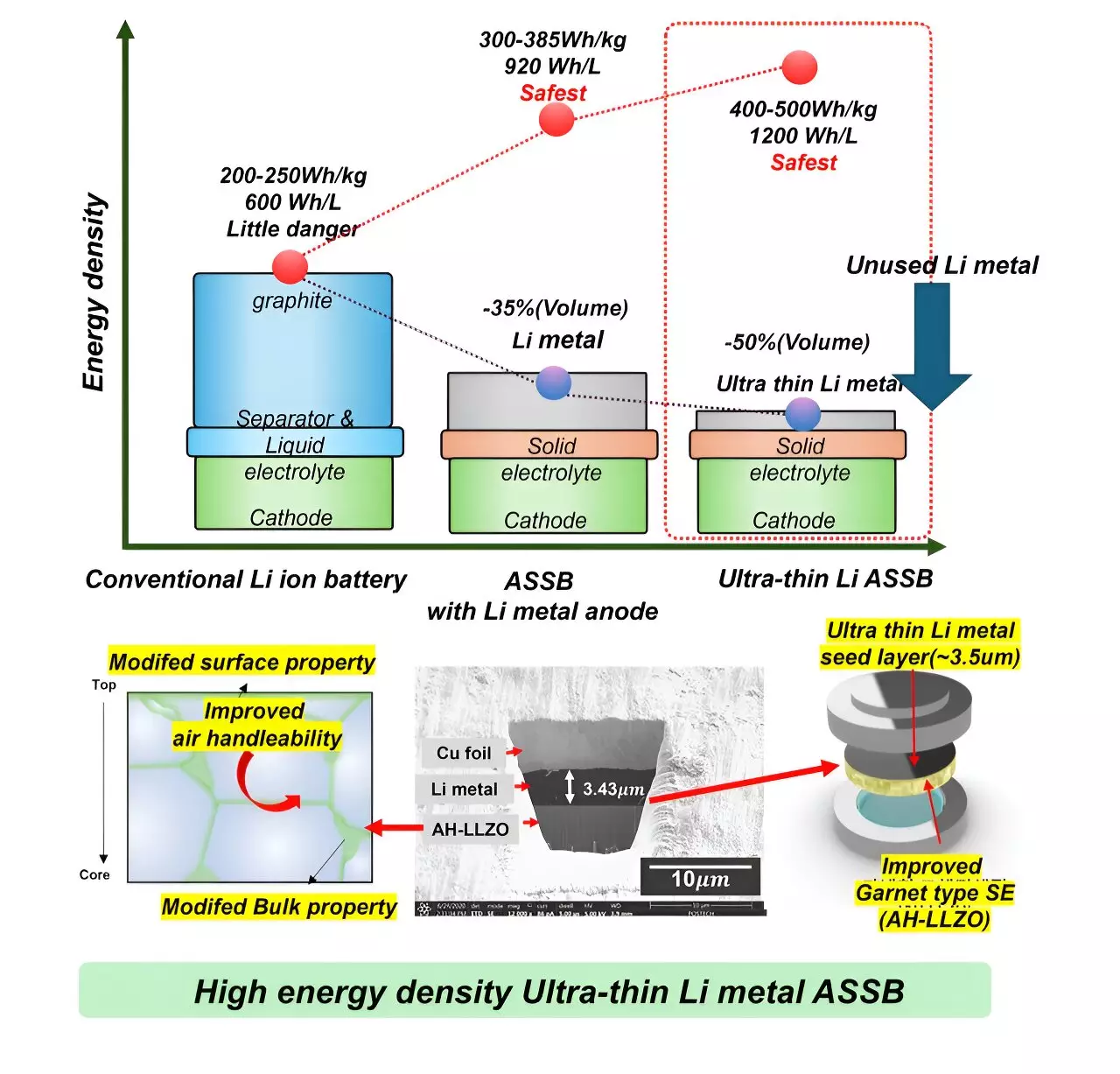In a world where complexity often reigns supreme, the key to solving challenges may actually lie in simplicity. A research team at Pohang University of Science and Technology (POSTECH) recently showcased this concept in their groundbreaking work on solid-state batteries. Led by Professor Byoungwoo Kang and Dr. Abin Kim from the Department of Materials Science and Engineering at POSTECH, the team unveiled a new approach to addressing the inherent issues of solid-state batteries by focusing on the core “essence” of the problem.
Solid-state batteries, considered the next generation of batteries due to their enhanced energy density and safety features, have long been plagued by challenges such as contamination layers forming on the surface of the electrolyte. The research team at POSTECH took a different approach by developing an air-handleable LLZO (AH-LLZO) technology that revolutionized the way solid-state batteries are constructed.
Rather than resorting to complex coating techniques or post-synthesis treatments, the team tackled the root of the issue by enhancing the surface and internal properties of the garnet-type solid electrolyte. By creating a new hydrophobic compound (Li-Al-O) that inhibits contamination layer formation, they were able to significantly improve the contact with lithium metal, resulting in the development of ultra-thin lithium solid-state batteries.
The impact of this research cannot be understated. By simplifying the process of creating solid-state batteries through a wetting process without the need for complex post-processing steps, the team has opened up a world of possibilities. The ultra-thin lithium metal layers produced through this innovation allow for a drastic reduction in the amount of lithium metal used, ultimately leading to a decrease in overall battery weight and volume while significantly boosting energy density.
One of the key advantages of the AH-LLZO technology is its ability to be stored in the air without requiring specialized handling or facilities. This not only simplifies the manufacturing process but also enhances the practical usability of garnet-type solid electrolytes, making solid-state batteries more accessible to a wider range of applications.
The research conducted by the team at POSTECH represents a paradigm shift in the world of solid-state batteries. By focusing on the essentials and embracing simplicity, they have managed to overcome longstanding challenges and pave the way for a new era in energy storage technology. As Professor Byoungwoo Kang aptly put it, they have successfully solved the problem of LLZO’s inherent contaminant layer without the need for complex post-processing steps, demonstrating the power of simplicity in driving innovation.



Leave a Reply